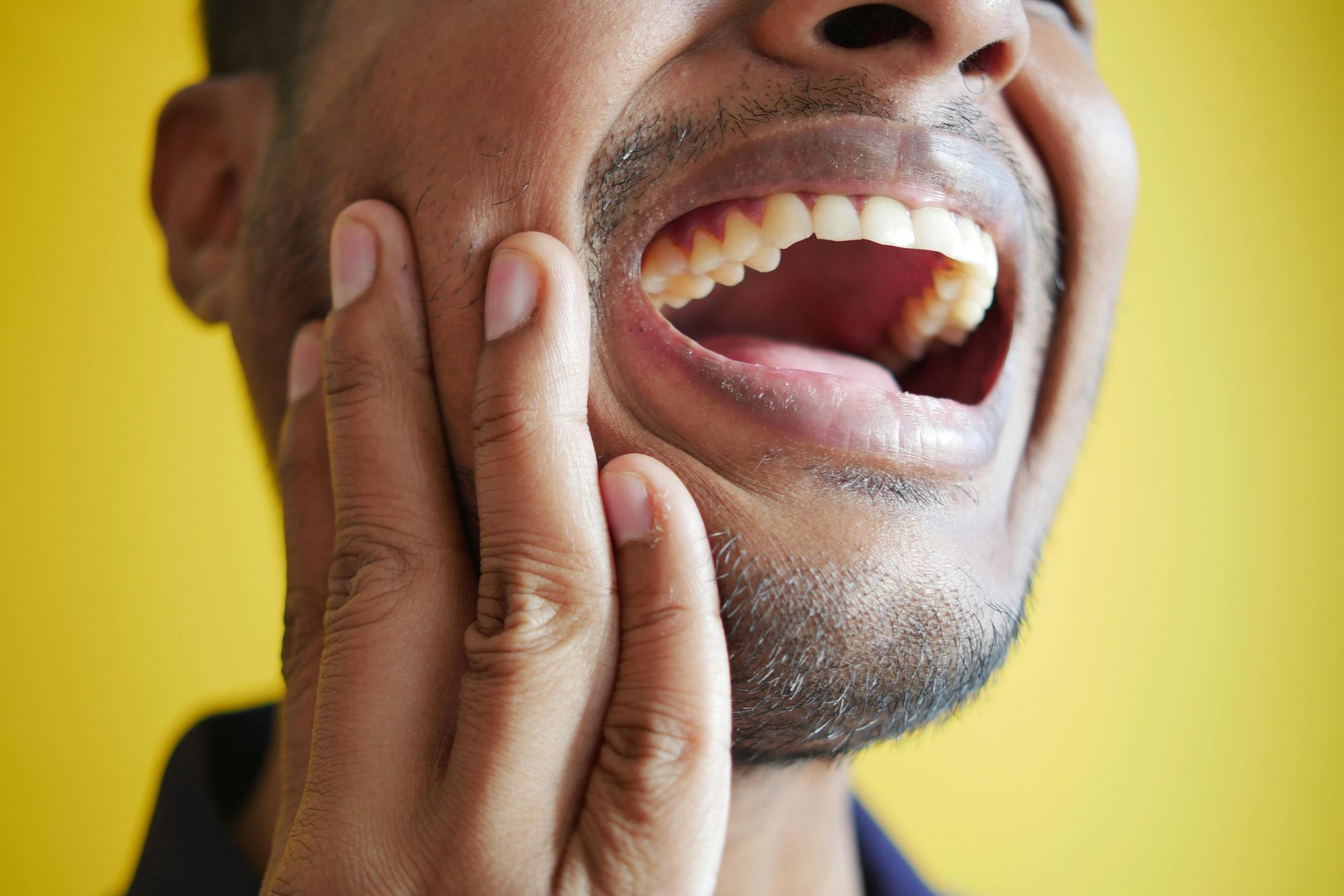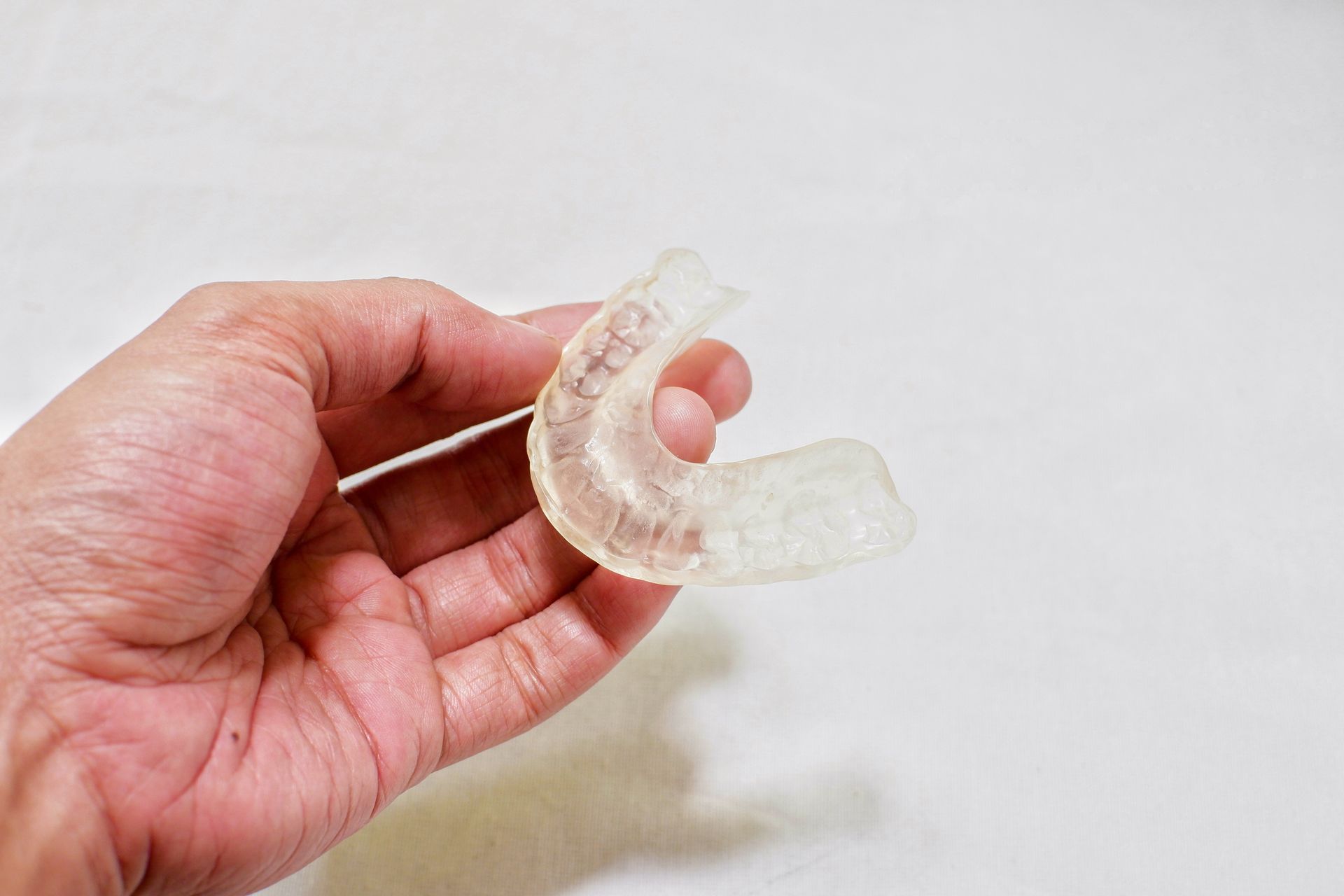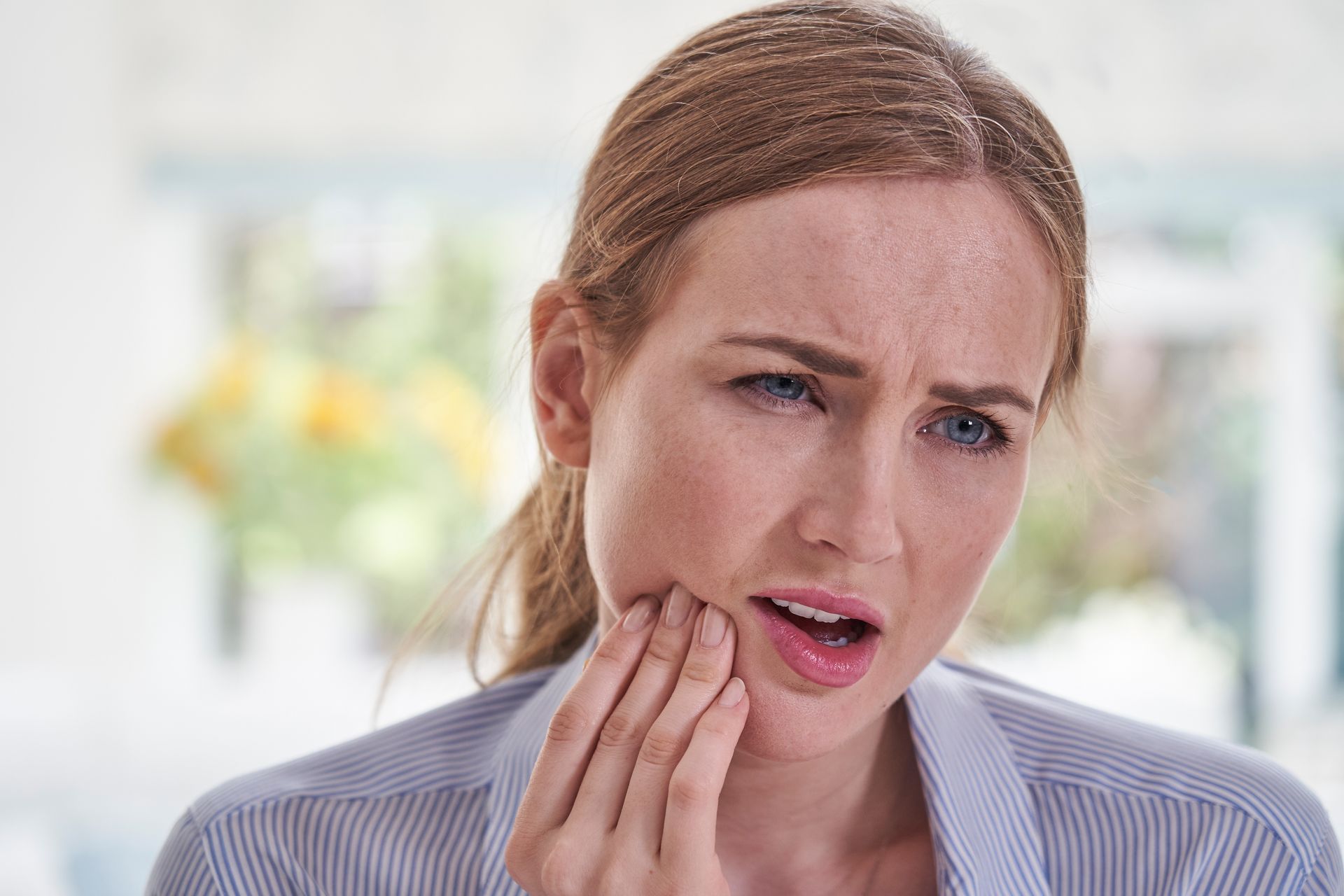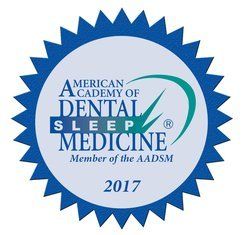The Best Type of TMJ Specialist to See for TMJ Pain
Temporomandibular joint disorders (TMD) are complex medical conditions that can be caused–and compounded–by a variety of factors. They can also impact multiple areas, producing pain in your jaw, teeth, facial muscles, neck, ears, head, and more. All of this can make TMDs difficult to diagnose, especially on your own or without the help of a specialist. A TMJ specialist can help you determine the source of your jaw pain, diagnose TMD, and treat the root causes of your condition.
What is TMD?
TMD is a disorder that stems from dysfunction of the temporomandibular joint (TMJ) that leads to TMJ and orofacial pain. Statistics show that between 5 and 12% of individuals live with a form of TMD. Most disorders that cause chronic pain impact middle-aged and older adults, but temporomandibular joint disorders can happen at any age, including children and young adults.
TMJ pain occurs twice as often in women as compared to men. In particular, women taking hormonal medications such as oral contraceptives or supplemental estrogen often seek care from a specialist treating TMJ disorders.
While jaw pain is the most prominent and common symptom of a TMJ disorder, this condition can also lead to problems in the orofacial area. TMJ disorders are also usually characterized by the following:
- Jaw popping, clicking, cracking, popping, grating, and locking
- Headaches
- Toothaches
- Facial swelling, usually in one cheek
- Referred pain in the neck and shoulders
- Spasms, fatigue, and tenderness in the orofacial muscles
- Neck pain
- Ear fullness or ear pain
- Ringing in the ears, also known as tinnitus
- Vertigo
Dysfunction of the temporomandibular joint is considered the source of the chronic pain that a patient with TMJ disorders experiences. There is a range of reasons why someone might develop TMJ problems. Some causes of TMD include:
- Arthritis of the TMJ
- Dislocation of the ball-and-socket joint within the jaw
- Chronic teeth grinding or jaw clenching, also known as bruxism
- Stress
- A family history of TMJ problems
- Connective tissue disorders that affect the jaw, such as lupus erythema or Sjogren's disease
- Injury or other trauma (such as surgery) to the jaw
- Craniofacial disorders
- Musculoskeletal disorders
In some cases, multiple causes leading up to a diagnosis of TMD. This makes it crucial to work with a qualified TMJ specialist who can accurately determine the cause of a patient's TMJ problems and offer the most appropriate treatment options.
What Happens if TMD goes Untreated?
If someone does not receive timely intervention from a specialist treating TMJ disorders, the chronic pain, discomfort, and muscle tension of TMJ disorders or TMD can lead to more significant physical and emotional health concerns.
TMJ and TMD symptoms are unlikely to improve without treatment, and they can affect all aspects of your life, contributing to things like:
- Depression
- Anxiety
- Nightmares
- Sleep apnea
- Insomnia
- Increased stress
By disrupting your sleep, TMJ disorder can also increase your risk of developing major health concerns like heart disease, obesity, stroke, and diabetes. Poor sleep and increased stress can compromise your immune system—making you more susceptible to illness–and impact your libido.
If you are living with the symptoms of a TMJ disorder, it's best to seek treatment from a qualified professional. Depending on the specific concerns you are experiencing, several specialists – even some that you already know – treat TMJ. This is the best way to avoid TMD's long-term effects from negatively impacting how you live your life.
What is the Negative Impact of TMD on Quality of Life?
The adverse effects of TMD are often far-reaching and extend to all areas of a person's life. Poor sleep is just one of the negative outcomes that can result from untreated TMD. Patients with TMJ problems often experience nightmares, sleep apnea, and insomnia. Long-term sleep deprivation can increase the risk of heart disease, obesity, stroke, diabetes, and other major health concerns.
Lack of proper sleep also causes imbalanced cortisol levels, which can lead someone to have difficulty managing stress. Poor sleep, compounded with high-stress levels, compromises someone's immune system and makes them more susceptible to illness. When someone does not get the proper amount of restful sleep, they are more likely to develop depression and a decreased sex drive.
Depression, anxiety, and lower libido can impair a person's relationships and interactions with others. Someone in constant discomfort is also more likely to demonstrate irritability and frustration, which can further hurt those around them. No one likes living in misery, especially not if there is a way to get help and put concerns like chronic pain from TMD behind them. This is why seeking care for something as treatable as TMD is crucial.
Who can treat TMJ disorders or TMD?
General practitioners are often the first point of contact for a patient suffering from TMJ disorders. These doctors meet with their patients often and may know there is a problem but may need to gain the specific knowledge or expertise necessary to treat TMJ problems effectively. Suppose you are suffering from symptoms of TMD. In that case, a general practitioner can refer you to a specialist and prescribe pain medication or muscle relaxants that can temporarily relieve TMJ symptoms until you visit the specialist.
General and cosmetic dentists and orthodontists are often among the first to notice the symptoms of TMJ or TMD in their patients. However, they also usually lack the in-depth knowledge to treat TMJ effectively and will typically refer those patients to a specialist.
What is a TMD or TMJ Specialist?
A TMJ specialist is a dentist board-certified in orofacial pain and treating TMJ disorders and TMD. Because TMJ disorders can be complex and multifactorial, you may need treatment from experts in other fields to address and treat your unique situation. A TMJ specialist will use their extensive knowledge of TMD and treatment options to create a comprehensive plan that may include insights and care from other doctors.
For example, if your TMJ disorder is causing unmanageable headaches, a neurologist may be able to help coordinate a part of your treatment solution.
If your TMD is related to or causing another condition, such as sleep apnea, your TMJ specialist can work with a sleep physician.
A TMJ specialist can also manage referrals for–any direct or oversee treatment plans with –other medical experts and physicians like:
- Rheumatologists focus on rheumatism and conditions such as arthritis. These providers have specialized knowledge of the body's joints, muscles, and ligaments.
- Pain management specialists focus on making chronic pain (including joint pain) more manageable.
- Physical therapy providers (including physical therapists and physical therapy assistants) rehabilitate patients by increasing their range of motion and reducing pain. When combined with splinting therapy, physical therapy can be a highly beneficial TMJ treatment.
- Myofunctional therapists work only with the mouth, tongue, and face muscles and focus on training proper breathing, speaking, chewing, and swallowing.
- Otolaryngologists (or ENTs) focus on ear, nose, and throat disorders. Patients with TMD may also experience sinus and ear pain.
- Oral and maxillofacial surgeons treat conditions specifically associated with the muscles, joints, and ligaments in the maxillofacial region.
What is the Prognosis for TMJ Syndrome?
The prognosis for TMJ disorder is generally good when the condition is correctly diagnosed and treated. TMJ disorder is often discovered by a general doctor or, more frequently, your dentist. Your doctor or dentist may first rule out other conditions, then further discuss your symptoms and examine your jaw.
During the TMJ examination, your doctor will most likely:
- Listen to and feel your jaw when you open and close your mouth.
- Examine the range of motion of your jaw
- Press on your face around your jaw to identify sites of pain or discomfort
Your doctor might prescribe additional tests to confirm the diagnosis. This could include dental x-rays, a CT scan for more detailed images of the joint, or an MRI to search for problems with the joint's disc or surrounding soft tissue. TMJ arthroscopy is sometimes used in the diagnosis of TMJ disorder. During the procedure, your doctor inserts a small thin tube (cannula) into the joint space, and a small camera (arthroscope) is then inserted to view the area and to help determine a diagnosis.
What are the Treatments for TMJ Disorder?
After diagnosis, you may be referred to a specialist to determine the best way to treat your TMD. Most patients are relieved to know that most TMJ disorder treatments are non-surgical. Many TMD sufferers find that relieving jaw pain can be accomplished through home remedies.
Some of the most effective home remedies for TMJ disorder include:
- Ice or cold packs applied to the painful joint
- Moist heat from a heat pack, warm water bottle, or damp towel applied to the area.
- Eat soft foods and avoid chewing gum.
- Over-the-counter medications like ibuprofen (Advil, Motrin), naproxen (Aleve), aspirin, or acetaminophen (Tylenol)
- Massage or gentle self-stretching of the jaw and neck muscles (this may be something you do alone after learning from a doctor or physical therapist)
- Relaxation and stress management techniques
- Exercises to increase mobility and strengthen your jaw as prescribed by your doctor
- Wearing mouth guards at night as prescribed by your doctor
Professional treatments are available when TMJ pain relief isn't something you can take care of alone. It would be best if you didn't try to "get used to the pain" or ignore it. Complications of long-term TMJ syndrome can include the chronic joint, face, and ear pain or migraines. If associated with other inflammatory disorders, long-term treatment may be necessary. Your specific treatment may depend on the cause of your TMD, where your pain is located, and your chosen treatment.
Your doctor may recommend one or more of these treatments to relieve your TMJ pain:
- Prescription Medications: If OTC pain medications fail to relieve your symptoms, your TMJ specialist may recommend prescription pain medications. muscle relaxants, or anti-inflammatories.
- Dental Splint Therapy: Dental splints can correct joint compression issues and provide pressure and pain relief while providing a cushion for your teeth.
- Bite Orthotics: Digital impressions and CT scans allow us to create customized bite orthotics that reduce unnecessary strain on the TMJ.
- Physical Therapy: Specific physical exercises and therapy methods are one of the most effective ways to retrain the joint to function correctly by restoring strength in crucial areas. Your doctor or physical therapist may practice these exercises with you until you are comfortable doing them at home.
Although an initial TMJ disorder diagnosis might seem frightening, the tests and treatment associated with TMD are typically non-invasive and very effective for long-term relief. If you have jaw pain or other facial pain that could be associated with TMJ syndrome, it's essential to seek treatment for your symptoms.
Make Sure to Carefully Choose Your TMJ Specialist
Since TMJ disorders are so complex, the most important thing when searching for a professional to treat your TMJ problems is to find someone who focuses their practice on this disorder and uses only effective research-based treatment modalities. Unfortunately, there is no regulated body for treating TMD.
Dentists and orthodontists can only treat TMJ disorders with significant knowledge and training. There are no shortcuts to effective TMJ treatment, and credentialing is one way to ensure you have found a dentist with the proper training, experience, and knowledge necessary to provide effective treatment.
When choosing your TMJ specialist, take these steps to ensure you're working with a highly trained professional with long-term experience treating TMJ disorders:
- Check certifications. Beyond a dental degree, your TMJ specialist may have specialized training in orofacial pain.
- Consider experience. You should determine how long your specialist has been practicing and if they frequently treat similar cases.
- Seek patient reviews. Patients who take the time to provide positive reviews and details about their treatment can be excellent resources for new patients.
- Determine your exact location radius. For example, if you are in the center of Houston, Texas, how far would you be comfortable traveling from there to see a specialist: 10 miles, 20 miles, 50 miles, or more?
- Identify preferences. Identify any preferences you have related to the specialist's gender, hospital affiliation, and primary language.
- Gather your medical records. Any documents you have relating to attempts to resolve your TMD would help find a resolution.
- Make your first appointment. Call the office and ask the medical secretary if you need to provide any other information before the visit.
- Get a second opinion. After your visit, feel free to seek a second opinion if you are uncomfortable with the results or feel you would get better care elsewhere. Your health is essential, so you should feel at ease advocating for yourself and the respect you deserve.
Who Should I Book an Appointment With?
Double Board Certified in Dental Sleep Medicine and Orofacial Pain, Dr. Katherine S. Phillips has spent most of her career treating patients with TMD and TMJ disorders. For over a decade, Dr. Phillips has helped thousands of people suffering from bruxism, TMD, and other related orofacial conditions like sleep apnea live healthier happier lives.
- Phillips' credentials also include the following:
- B.S. from the University of Michigan
- D.D.S. from the University of Detroit, Mercy School of Dentistry
- M.S. in Orofacial Pain from the University of Southern California's Herman Ostrow School of Dentistry
- Board Certified Sleep Dentist and Diplomate of the American Board of Dental Sleep Medicine
- Board Certified Orofacial Pain Specialist and Diplomate of the American Board of Orofacial Pain
- Past President of the American Board of Dental Sleep Medicine (ABDSM)
- Past member of the Annual Meeting Committee for the American Academy of Dental Sleep Medicine (AADSM) from 2014 to 2016
- Chair of the Introduction to Dental Sleep Medicine Course offered by the AADSM
- Contributor to the Consensus Committee to develop a formal definition for an oral appliance and co-author of the accompanying support paper
- Led a Dental Sleep Medicine shadowing program for Sleep Physician Fellows at Northwestern University, the University of Chicago, and Baylor College of Medicine.
Unlike general dentists, Dr. Phillips has dedicated her entire practice to treating TMD and sleep breathing disorders like obstructive sleep apnea and snoring. By combining her extensive experience and education with an established network of trusted healthcare providers, Dr. Phillips can develop and direct the comprehensive, personalized treatment you deserve for a future free from the jaw and facial pain.
If you or a loved one are suffering from the pain and symptoms of TMJ disorders or TMD, call REstore TMJ & Sleep Therapy in The Woodlands, TX, today at 281-296-6797 to schedule a no-obligation consultation. You can also use our convenient appointment form or contact us here.
You don't have to live with TMD or TMJ disorders. Treat the pain and the underlying causes of your pain today at REstore TMJ & Sleep Therapy for a better tomorrow.
Contact Us Today For A Consultation!
Contact Us
Thank you for reaching out to us at REstore TMJ and Sleep Therapy. We look forward to helping you. We will follow up within 24 hours for contact requests received during normal office hours Monday – Thursday. If you have submitted a request later in the day on Thursday – Sunday, we will follow up on Monday. If you would like to talk to us before we can get to your request, please feel free to give us a call at 281-296-6797 Monday – Thursday 8am – 4:30pm. Have a great day!
Regards,
Dr. Katherine Phillips and Staff
Please try again later.
REstore TMJ & Sleep Therapy P.A.
1001 Medical Plaza Drive,
Suite 200 | The Woodlands, TX 77380
281-296-6797
Dr. Phillips serves TMJ & Sleep patients in: The Woodlands TX | Spring TX | Conroe TX Tomball TX | Cypress, TX | Houston, TX | Kingwood TX | Humble, TX | Katy TX
© 2023 by REstore TMJ & Sleep Therapy | Terms Of Service & Privacy Policy | XML Sitemap
-2700x842-1920w.png)

















